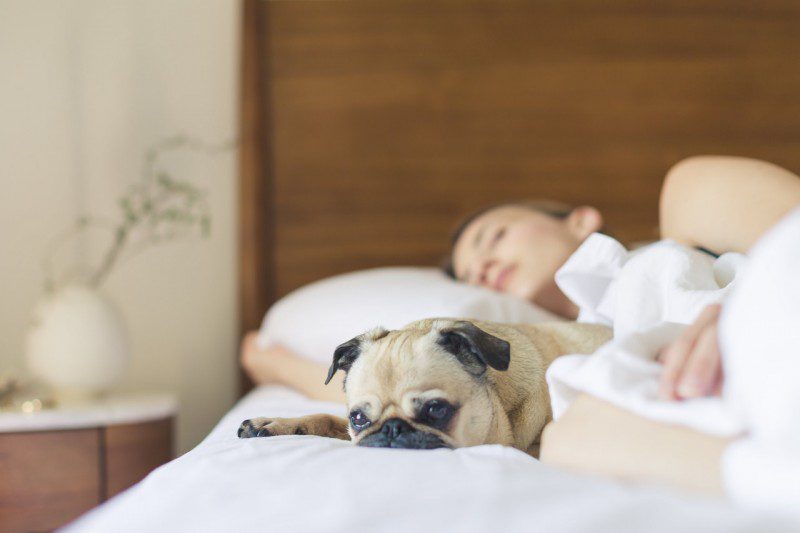If you’re asking yourself the question ‘do I need more sleep’ we can cut to the chase right now with the short answer – yes. But there’s more to the story; hours and quality both matter to keep both body and mind ticking over. However many of us struggle to get optimal shut eye. Hopefully, the tips on how to get a better night’s sleep in this post is helpful.
How to get a better night’s sleep:
Modern times is all about the work hard play hard mentality. Who has time to care about sleep? You’ll sleep when you’re dead. How little sleep you can function on was something to almost boast about. Luckily today, the wave of wellness warriors, both local and famous, are helping to reshape this to bragging about excessive sleep. While the elite are now forking out money for sleep retreats and organic cotton sheets, the rest of us are just trying to scrape together some shut eye to function.
The importance of sleep is highlighted in the fact that without it, we would die in a matter of days. This is because sleep deprivation speeds us the ageing process by slowing down/interrupting the two major functions of sleep
- Cleaning up celullar garbage
- Allowing body to repair itself: this can include detoxification, rebuilding immune system, muscle repair and more.
Sleep is one of the single best ways to heal your body and yet most of us don’t get near enough. During the night you move through different stages of sleep, one of which is deep sleep.
If you’re prone to waking at night, you reduce the amount of time you spend in slow-wave sleep, the deepest stage. The benefits of this deep sleep are linked to brain health, memory and learning. More than 20 large-scale epidemiological studies reported the same clear relationship: the shorter your sleep, the shorter your life. These studies associate poor sleep with everything from obesity to alzheimers.
Some symptoms of poor sleep:
- Problems with cold/heat
- Lowered immunity
- Increased production of stress hormones
- Cravings and appetite imbalance
- Increased inflammation
How much sleep do you need?
The World Health Organisation recommends between 7-9 hours of sleep per night. However, this figure is very individual based on age, genetics, environment and daily differences in physical and mental strain.
Tips on how to get a better night’s sleep
Bedroom:
A cool bedroom helps to set you up for a deep slumber with the ideal temperature being 15-19 degrees. Light pollution is actually a thing where the lights of electronic devices impose on the efficiency of our 24 hour body clock. Aim to remove all technology from the bedroom and one hour before bed. Invest in a simple alarm clock and stop overstimulating your brain checking your phone last/first thing.
Stimulants:
A Harvard study found that our exposure to blue light at night can delay production of the sleep hormone, melatonin by up to 90 minutes. Blue light, like that emitted by electronic devices, is an omnipresent nemesis when it comes to sleep because it can throw off circadian rhythm. This is because blue light is there to help stimulate us waking up (like the sky in the morning) versus red light which helps wind us down at night. There are, however, devices and apps that can help dull this light like f.lux
Set the tone:
Developing a night time routine whereby you dim the lights in the room where you spend your evening hours to avoid bright light and help you wind down. Using candles and dimmed lighting helps to create a more red light environment that then helps you wind down for bed.
The right noise:
Those living in towns/cities often suffer more from unwelcome sounds that jolt you out of sleep. Drown it out with white noise apps that can simulate country-side/beach sounds to help you sleep. These ambient sounds are proven to help reduce night-time wake ups.
Stress relief:
One of the biggest factors in poor sleep is stress. It’s no surprise when we live in a society saturated by it. Calm your muscles with an epsom salt bath or start a journalling practice to empty your thoughts onto paper.
Nutrition:
Eating some slow releasing low GI carbs can help with getting good sleep but avoid eating late at night. Try to eat dinner 2 hours before bed to avoid having the food sitting in your stomach all night when your body is trying to shut down digestion. In addition, try sipping on herbal teas known to help with sleep like camomile or lavender. Another handy tip is to get out and go for a walk after dinner to help encourage optimal digestion.
Bonus tips to help you wake up!
Feel groggy on waking? Try out some of these:
- Try to keep to a regular waking schedule, even on weekends.
- Start your day with a pint of water to help kickstart digestion and metabolism
- Stretch it out! Try a simple yoga stretch like down ward dog and/or sun salutations to stimulate your muscles
- Get out into the sun: Grab you tea/coffee and go and stand out in the back garden/balcony to get some light on your skin.
- Hit the gym first thing to boost serotonin and endorphins!












